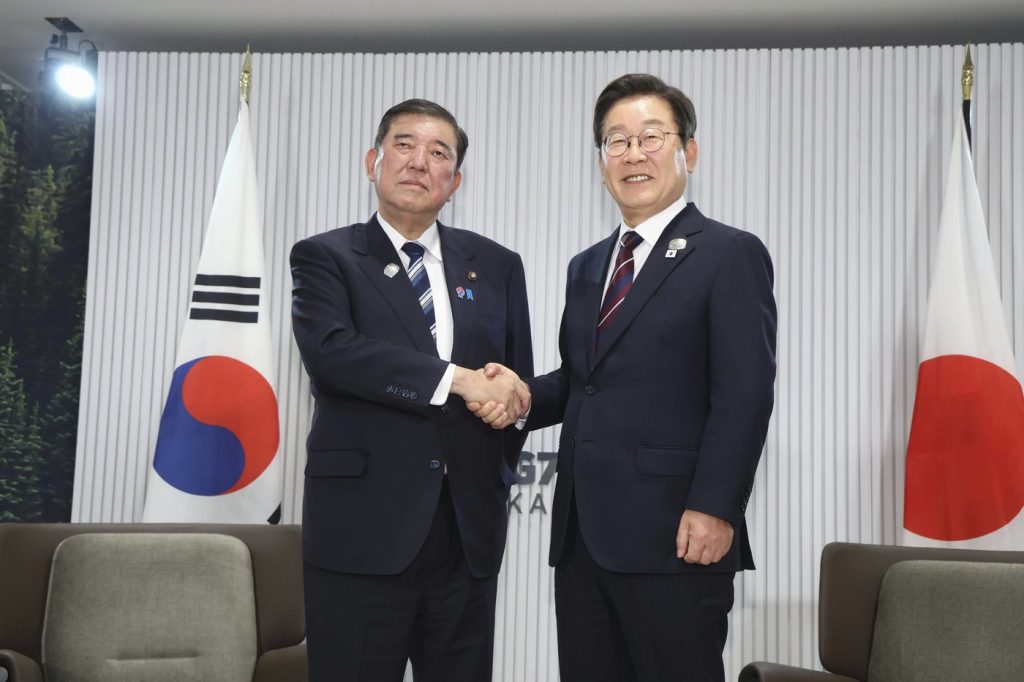TOKYO (AP) — Japan and South Korea are commemorating the 60th anniversary of their diplomatic normalization, a significant milestone marked by a complex history marred by Japan's colonial rule over Korea in the early 20th century. Relationships between the two nations have improved in recent years; however, both countries face political uncertainties and a precarious future concerning their ties.
From Seoul, South Korea’s new liberal president, Lee Jae Myung, is striving to distance himself from his predecessor, Yoon Suk Yeol, who now faces legal challenges regarding his imposition of martial law. Lee, positioning himself as a pragmatist in foreign policy, may cautiously pursue a diplomatic strategy with Japan, continuing the groundwork laid by Yoon, who aimed to enhance security cooperation with the United States amid North Korea's nuclear threats.
In 2023, Yoon introduced a compensation plan for colonial-era labor victims, which sparked outrage among victims demanding direct payments and apologies from Japanese corporations. This outreach has promoted tourism and business ties, yet a persistent resentment remains in South Korea towards Japan for its failure to address historical grievances genuinely.
While promoting a pragmatic foreign policy, Lee has criticized Japan for not acknowledging its imperialist past, which he believes hampers relations. Upcoming historical commemorations—particularly the August 15 anniversary of Korea’s liberation from Japan—are expected to be critical, as they could test the stability of their improved ties. Calls from Seoul for Prime Minister Shigeru Ishiba to issue a stronger remorse statement could be pivotal in solidifying relations.
Additionally, the two governments face an immediate concern regarding U.S. President Donald Trump’s rising tariffs and protectionist policies. South Korea’s Hankyoreh newspaper recently urged for collaborative efforts to counter Trump’s proposed tariffs on automobiles, as both nations have trade-dependent economies facing threats.
From the perspective of Tokyo, Ishiba has sought to improve bilateral ties, openly acknowledging Japan’s wartime aggressions. His initial meeting with Lee was perceived positively, despite apprehensions in Japan regarding the new South Korean leader's perspective on historical grievances. Lee emphasized a desire to cultivate a future-oriented relationship and addressed the importance of cooperation on North Korea's nuclear advancements.
Since the normalization treaty in 1965—a pact where Japan provided $500 million in economic aid to South Korea—all wartime compensation issues were claimed to be settled. However, issues surrounding forced labor and the exploitation of Korean women during the war have strained relations over the years. Japan has offered atonement funds in the past for "comfort women," but these efforts have been complicated by various administrations and differing national sentiments.
Recent improvements in relations have encouraged Japan to watch how President Lee will navigate the current diplomatic landscape. Cooperation between the nations has become increasingly essential to address mutual challenges, such as regional security and the disruptive economic policies initiated by the U.S., as articulated by Japan’s leading newspaper, Yomiuri.
At a recent reception commemorating the 60th anniversary in Tokyo, Ishiba remarked on his optimism for a constructive future in Japan-South Korea relations, highlighting the potential for collaborative efforts to tackle common challenges including low birth rates and declining populations.











